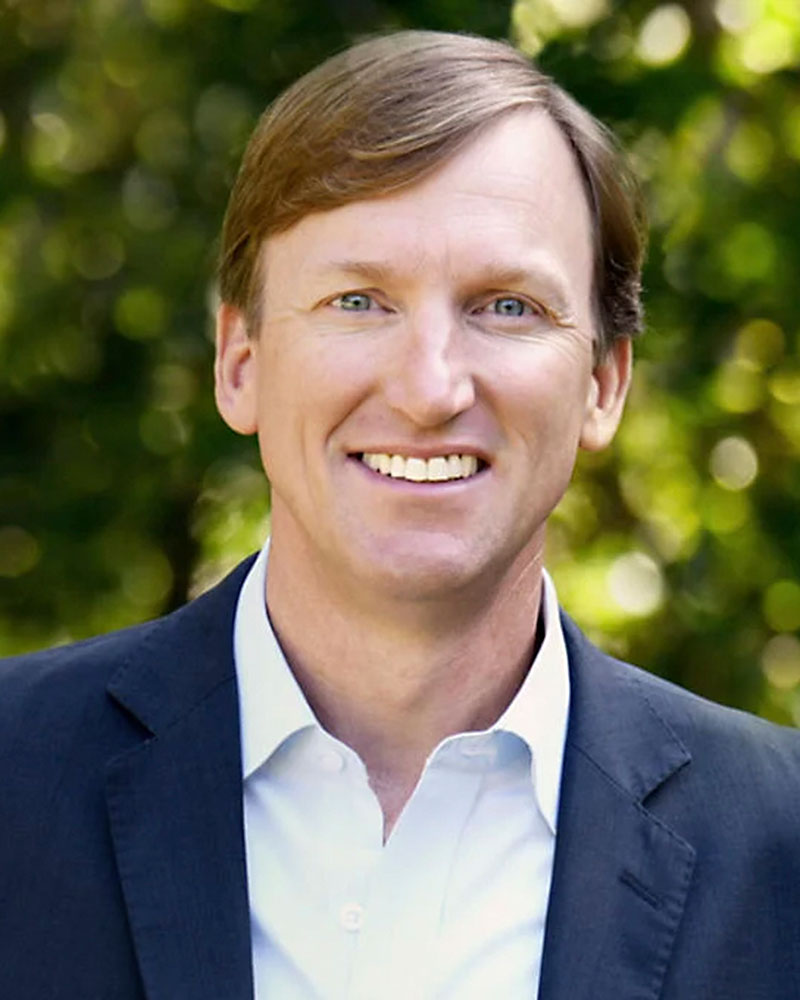The Tides of March
Ready for a blue wave in November’s midterms? That’ll depend on the race.
By Mary Tuma, Fri., Feb. 9, 2018
The quadrennial challenge for state Democrats is finding the perfect candidate to unseat – or at least, shake the throne – of the reigning Republican emperor. Someone who's polished, with enough name ID, political goodwill, policy experience, and Democratic bona fides to satisfy progressives without alienating moderates. Dems have spent much of the past four years stinging over 2014's 20-point gubernatorial loss of former state Sen. Wendy Davis to Greg Abbott, and with the rush of political backlash following Trump's election, have the appetite to come back swinging. It seemed as though the Democratic establishment had a golden opportunity to put forth the ideal candidate.
Then last year's legislative session came and went, and summer rolled through without any legitimate prospects. U.S. Rep. Joaquin Castro squashed rumors of a run in September, around the same time as his brother. The horizon started to look hazy. So voters waited. And waited. And waited.
With the filing deadline almost up, one name finally surfaced. On Dec. 6, Dallas County Sheriff Lupe Valdez announced she'd run for governor; one day later, Houston entrepreneur Andrew White made his own long-teased bid official. At the tail-end of four years, primary voters had only four months to familiarize themselves with the two most prominent candidates (there are nine in total), neither of whom are particularly recognizable political names to the general public. Talk about playing catch-up.
The position they've signed up for is a governorship that doesn't hold as much technical power as its counterparts in other states – or, arguably, its own lieutenant governor. However, the role accumulated more weight during Rick Perry's entirely-too-long tenure, and his hobby of appointing like-minded pals to influential state boards and agencies. (During his own tenure, Abbott has made about 900 appointments, of mostly Anglo men, many of whom were big donors to his campaign.)
The governor can also take advantage (as both Perry and Abbott certainly have) of slashing would-be laws through vetoes; calling special sessions; and pushing legislative priorities. For Abbott, that's meant a sanctuary cities law, anti-choice legislation, and efforts to pass a bigoted bathroom bill. (To say nothing of his war on heritage trees.) And of course, there's the bully pulpit. Abbott has helped foster fear of the LGBTQ and immigrant communities; oppressed women's bodily rights; disregarded environmental protections; the list goes on.
But for Texas progressives it's a struggle to feel hopeful that a Democrat could actually replace him. The party hasn't won a statewide election since 1994, the longest drought of any state. And while we can't escape the near-constant and optimistic refrain that Texas will soon turn blue through Hispanic voters, it'll be a long road ahead: More than 1 million Latinos in Texas are still unregistered to vote.
And let's not forget non-voters, the most troubling faction of the state's political landscape. During the last gubernatorial election, only 25% of the voting age population bothered to cast a ballot. Less than 3% of eligible Democratic voters showed up for the primary. Those figures are undoubtedly exacerbated by Texas' gerrymandered and racist electoral maps, but you know the adage: "Texas isn't a red state or a blue state, it's a non-voting state." In the end, Republican primary voters, a sliver of typically the most extreme on the right wing, are who decide what's best for the state's nearly 30 million residents.
But the growing dissatisfaction with Trump from moderate Republicans, and pushback against state officials over time-wasting culture wars that are bad for business, may be shifting the electorate. We're not saying Texas has turned blue, but there might be enough pissed-off Republicans and motivated Democrats to make a dent during this election cycle. For Dems taking their civic duty seriously – and hopefully the many more who will turn out this March – the primaries serve as an opportunity to highlight political values. It should be about reinforcing principles of inclusion, diversity, equality, accountability, and social justice; representing all of Texas, not merely the business class or cultural crusaders.
So do either of the star candidates exhibit those values? Voters have about one month to decide.
The First Queer Latina Sheriff
Teachers at Lupe Valdez's elementary school in San Antonio used to pull the future Dallas County sheriff aside during recess and slap her on the knuckles for speaking Spanish. She says it happened so often that the pain eventually decreased. "We were made to feel like only second-class citizens speak Spanish," she says. "It was degrading. It could have made me very bitter, but instead it helped me be a good leader. I feel like we are getting close to that way of thinking" about the anti-immigrant tone of the state's current leadership.
Valdez, 70, spent the past 42 years in law enforcement, resigning from her position in Dallas County just before announcing her candidacy. She's the youngest of eight children in a Mexican-American family, and when she was younger would help her migrant worker parents out in the fields. She joined the U.S. Army, rose to captain, and eventually senior agent with the Department of Homeland Security, from 2002 to 2004. That's when she decided to run for sheriff. Considered an underdog in her first election, Valdez ended up ousting two decades of Republican leadership and held her office for four terms. She prides herself on having cleaned up a mismanaged and corrupt department. "It was known for abuse and beating up inmates. I spent the first few years just trying to change the culture."
Valdez is against the death penalty and open carry, supports increased background checks on gun purchases, and diverting border security funds to local law enforcement. Her platform seeks to boost the blue- collar worker, by raising minimum wage to $15 per hour and expanding Medicaid. She's secured the endorsement of Texas AFL-CIO's political arm.
As a queer Latina – and the state's first openly gay and first Latina sheriff – Valdez's run against an anti-LGBTQ, anti-immigrant opponent feels deliciously poetic. Growing up in a strict Mexican-American family, Valdez says her sexual orientation would have been grounds for disownment. She came out in her mid-30s after her parents passed away, not discovering the term "lesbian" until her college years. "I am very spiritual, so it was very difficult for me to accept at first," she says. "I did not come out until I was okay with my spirituality." She says the bigotry and divisiveness over last session's bathroom bill motivated her to run. As for immigration, Valdez's track record speaks for itself. She butted heads with Abbott in 2015 over her refusal to comply with ICE detainers unless inmates were charged with violent crimes. "The way I explain it to the immigrant community is that you came here for a better life, so someone who attacks, rapes, murders, that is not creating a better life. We do not need to have those people here."
And while her main challenger is "personally pro-life," Valdez isn't shy about retelling her story of offering to finance her niece's abortion in the Eighties. (Her niece eventually changed her mind, and Valdez helped with the out-of-wedlock pregnancy.) All women should be allowed to make their own choices, whatever that choice is, she says. She sharply admonished the state's slew of anti-choice laws.
While Valdez has been severely outraised by the GOP incumbent – literally a thousand times over – she remains confident. Asked what her priorities would be if she won the Democratic primary, Valdez cuts in self-assuredly, "What do you mean if?"
"Everyone keeps telling me it's going to happen in 2020. I'm saying it's going to happen now," she says. "It's always 'mañana' – I say it's today."
The Conservative Democrat
Shortly after delivering the eulogy last summer at the funeral for his father (former Texas Gov. Mark White), Andrew White found out the state's current governor was calling a special legislative session to, among other priorities, pass an anti-transgender bathroom bill and regulate tree ordinances. The 45-year-old Houston businessman had never entertained the idea of entering politics, especially growing up with a governor as dad. But hundreds of people at the funeral reminded him that the elder White had made tough decisions during his governorship in the Eighties, like his "no pass, no play" policy, which forced student athletes to pass their courses in order to play sports.
"It just hit me that we don't have leaders like my dad anymore," White relayed to me last week. "He made decisions that could jeopardize his career in politics but made them anyway because they were the right decisions." That realization, coupled with his assistance during Hurricane Harvey, led White to rethink things. "I need to step up and get involved in our state."
An entrepreneur of 20 years, White's businesses included tech and manufacturing. He grew up in Austin, attending Zavala Elementary and O. Henry Middle School, and graduated UT with a master's in business. ("If it weren't for Matt's El Rancho chile con queso, I wouldn't be here today," he added.)
On the campaign trail, White dubs himself a "commonsense" and conservative Democrat who will instill "sanity and reason" to Texas. He's focused heavily on reforming health care and education (his wife is a teacher, as were his mother, grandma, and aunt), pointing to Texas' dismal ratings nationally in both sectors. He supports a Medicaid expansion, saying county hospitals, and as a result, taxpayers, are suffering due to Abbott's obstinance. "If you don't fix education and health care you are never going to fix property taxes," he says. White promises a $5,000 pay increase for teachers without raising taxes through closing a $5 billion property tax loophole that benefits commercial property owners. He also has plans to redirect the $800 million in state border security funding to education. "We shouldn't be using Texas tax dollars to protect and defend the United States border."
White caught criticism early in his campaign for his abortion stance; he's "deeply pro-life" due to his Christian beliefs. But he said that he supports Roe v. Wade and, if elected governor, would veto "all" bills that limit a woman's right to choose. He attributes the difference between his personal beliefs and campaign policies to his commitment to the separation of church and state. While he's against Senate Bill 4, White's centrist colors show with his lament of "our weak" borders, which he said on his website "read like an 'Open for Business' sign to millions of undocumented immigrants and the criminals who take advantage of them." For 20 years, White headed Geovox Security, which sells heartbeart detectors used at prisons, border crossings, and military facilities to track people. And though it's since been removed, that same website caught flak in December when the Texas Observer noted that White had suggested Texas partner with the Israeli Border Police to "learn the most effective ways to manage and protect our borders." Asked about that recently, White wrote it off as a "joke that people didn't quite understand" and said it was a "suggestion to Trump in a funny way."
White refrains from naysaying his fellow front-runner, or any of the candidates for that matter. Instead, he points to his larger campaign war chest and stresses that his message will "resonate more" with general election voters. "The main issue to differentiate who to vote for would be who has the best chance of beating Greg Abbott," he said. "And I do."
Coverage continues next week with the News Staff’s look at contested LEGE and COUNTY races, including JUDICIAL races and the two-candidate race for CHAIRPERSON OF THE DEMOCRATIC PARTY. Next week’s issue will also feature the Chronicle Editorial Board’s primary endorsements. See ongoing coverage at austinchronicle.com/elections.
Got something to say on the subject? Send a letter to the editor.













